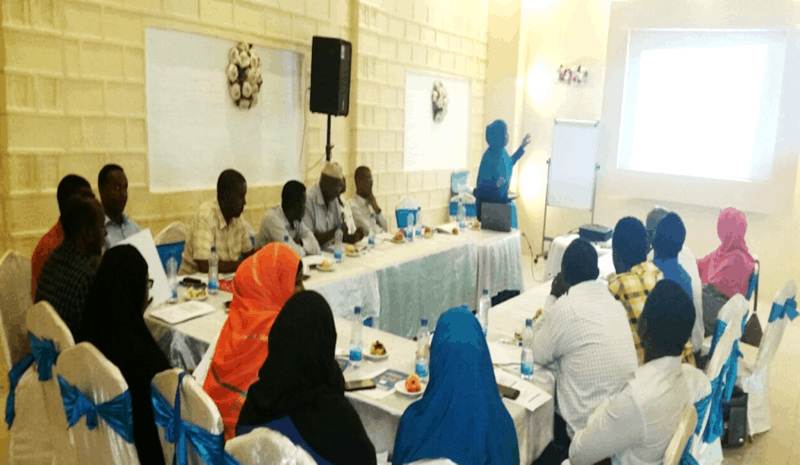Max Planck Foundation organises workshop on constituent unit representation in federal systems for staff at the Ministry in Somalia
The Max Planck Foundation organised a workshop on 4 June 2016 for the Somali Ministry of Interior and Federal Affairs (MoIFA) on the representation of constituent units in national decision-making processes. The workshop is part of a series of knowledge building training and was attended by 27 participants who work at the Ministry on questions directly or indirectly related to the federalisation process in Somalia.
By way of comparative case studies, participants learned how federal countries have developed different mechanisms to allow for the representation and involvement of constituent units in central decision-making processes. Most notably, the Max Planck Foundation’s Technical Advisors highlighted that many federations have established a second chamber of their respective parliament, which serves, inter alia, as a forum for intergovernmental dialogue and strengthens the representation of sub-national governments or regional constituencies at the national level. Under the guidance of the Technical Advisors, participants learned about different models with regard to the composition, mandate and decision-making procedures of second chambers.
With a view of the upcoming election and the envisaged establishment of a second chamber to the Federal Parliament in Somalia, as stipulated by the Provisional Constitution, the topic of the workshop has a direct relevance for the domestic decision-making processes. With the formation of Member States almost concluded, intergovernmental negotiations and consultations on the adequate representation of constituent units at the centre are gaining traction.
With the knowledge acquired during the workshop, the participants have gained a better understanding of the issue of sub-national representation in federal systems. As a result, the MoIFA is expected to be equipped with the necessary capacities to respond more effectively to challenges arising from the establishment of different levels of governments and the re-structuring of governmental decision-making processes in Somalia

